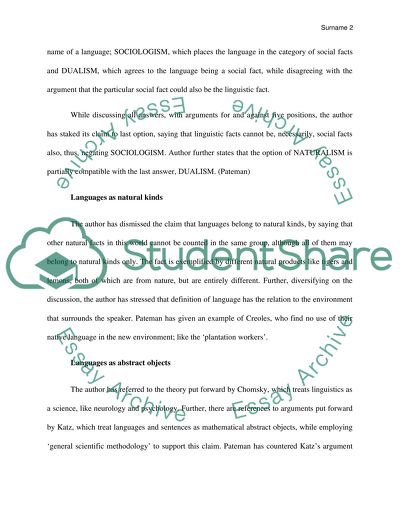Cite this document
(“What is a Language Essay Example | Topics and Well Written Essays - 1000 words”, n.d.)
Retrieved from https://studentshare.org/english/1479169-read-article-and-write-a-short-essay-summarizing
Retrieved from https://studentshare.org/english/1479169-read-article-and-write-a-short-essay-summarizing
(What Is a Language Essay Example | Topics and Well Written Essays - 1000 Words)
https://studentshare.org/english/1479169-read-article-and-write-a-short-essay-summarizing.
https://studentshare.org/english/1479169-read-article-and-write-a-short-essay-summarizing.
“What Is a Language Essay Example | Topics and Well Written Essays - 1000 Words”, n.d. https://studentshare.org/english/1479169-read-article-and-write-a-short-essay-summarizing.


